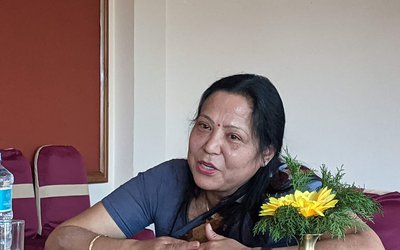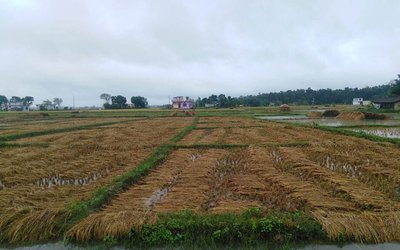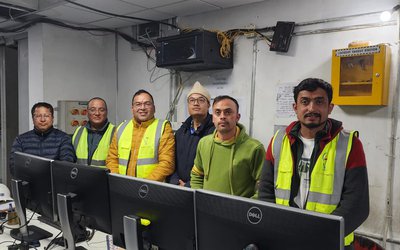I am happy that our committee has been able to present the report to the government as per the schedule. I cannot claim that our report is perfect. I cannot deny the fact that there might have been certain lacunas. One thing I can claim, however, is that this report will help in restructuring the state in future and settle much of the controversy over it. Although state restructuring is a very complicated issue, we got less than three months to prepare the report. One of the positive aspects of our committee was that we were able to present one report. We tried our best to bring a consensus document but three of our colleagues tabled separate reports. We agreed on many issues. Differences were very few. Fundamentally, there was a consensus on most of the issues. There were agreements on certain issues and there were differences on some particular issues. For instance, we had consensus on women’s rights and dalit’s rights. We put our views in accordance to the terms of references given to us. There are many positive suggestions in our report. If one is biased, the document is merely a bundle of papers. We were able to present our views looking at the aspirations of the people. For instance, the report decided to restructure the state in accordance to the identity and capability of the provinces. Majority of us believe that there is the need of a province on non-geographical basis for dalits. This document will provide a win-win to all. We have also suggested that the local bodies should come under the purview of the provinces. Instead of three tiers of the government, we have proposed three tiers with the local bodies under provinces. This is because there cannot be three separate entities in the state as powerful as provinces and the center.
People are criticizing our document on the basis of hearsay. People will realize there are more important things in our report. As the prime minister has already handed over the document to the Constituent Assembly chairman, it is the property of the CA now. Our document is a value addition in the process of state restructuring. Our commission is a mixed group of people in terms of ethnicity, resources and expertise. Due to this balanced composition, we were able to produce a balanced report. According to media reports, I can guess that our committee members had certain party leanings as they were appointed under the recommendation of political parties. However, I did not find any political views and stands during the process of our discussions. I am an independent person and I presented the report as an independent expert.
We have crafted the provinces on the basis of their identity and capacity. We don’t have any bias towards or against any particular group, geography or ethnicity. We consider identity along with the capability of the state as the main factors. So far as the division of the state boundary is concerned, all the provinces of Nepal share the border with Nepal’s provinces. Dalits are one of the backward, oppressed and excluded communities in Nepal. According to National Census 2001, Dalits comprise 13 percent or 3 million population. This may have increased in the recently conducted census in 2011. They may be over 6 million. They are scattered across the country. We were unable to form one province for them. So we decided to have a state or they will be protected in all states. So far as the divisions of the state are concerned, they will be functional in future.
- SWISS SUPPORT: Construction Of A Trekking Trail In Koshi
- Dec 19, 2024
- PM OLI'S VISIT TO CHINA: BRI Agreement
- Dec 16, 2024
- RASUWAGADHI AND SANJEN: Begin Generation
- Dec 03, 2024
- NEPAL, INDIA ELECTRICITY TRADE Nepal's Advantage
- Dec 02, 2024
- PM Oli'S VISIT TO CHINA: Nepal's Dilemma
- Dec 01, 2024
















